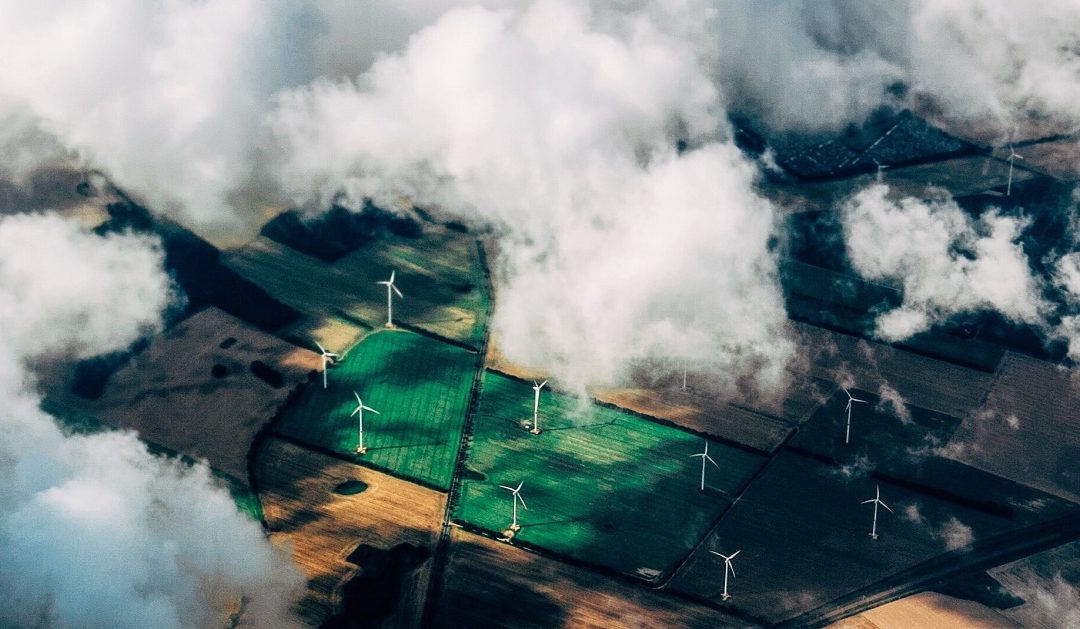By Jessica Baxter, Centre for Social and Sustainable Innovation co-op student. Photo: Thomas Richter on Unsplash.
The Gustavson School of Business made a commitment over 10 years ago to measure and report on its carbon emissions and advance the process of greening its operations. For the last several years, the school has taken things a step beyond measuring and reducing, and purchased carbon offsets to make the school carbon neutral.
“Our 2019 carbon report marks a decade of measuring and reporting on our carbon footprint,” says Basma Majerbi, one of the founding members of Gustavson’s Carbon Neutrality Plus Committee. “This goes beyond what is mandated for BC public sector institutions. We’re really proud of this achievement as we celebrate our fourth year of being a carbon-neutral business school.”
Gustavson’s commitment to tracking carbon helps over one hundred Gustavon faculty and staff make more eco-conscious decisions.
“Everyone at Gustavson cares about the environment,” says Heather Ranson, interim director of the school’s Centre for Social and Sustainable Innovation (CSSI). “We make conscious decisions about it every day. Knowing how much carbon we produce helps us make those decisions. There are days when it is just too hard for me to bike (like when I have a tin of cupcakes to carry in!), so I can choose my car or the bus. Knowing how much carbon we produce, and knowing that the faculty has to offset that carbon, helps me choose to take the bus.”
Heather continues: “Gustavson faculty and staff have made tremendous efforts to use transit, walking or cycling to get to work. They see the benefits in not paying for parking, reduced congestion on the roads and improved fitness.”
“In 2019, 42% of commutes were by sustainable methods,” Basma adds. This is compared to 27% in the carbon report from 2010. Overall, commuting made up 7% of Gustavson’s 2019 carbon footprint.
The daily changes that Gustavson’s community members are making are what makes carbon reporting so impactful. This report offers many helpful insights into Gustavson’s carbon emissions. Some interesting findings from this year’s report include that Gustavson’s overall carbon emissions amounted to 957.4 tonnes of carbon. Although this is a 3% increase from 2018, it is a 5% decrease from the 2010 baseline. While natural gas and travel emissions went up slightly, 3% and 5% respectively, from 2018 to 2019 – not an unexpected increase given our continued increase in the number of staff, faculty and students– emissions in all other areas have decreased during that time. Emissions have gone down in all categories since our 2010 baseline: since we first started reporting a decade ago, natural gas emissions have decreased by 30%, and electricity has decreased by a whopping 79%.
When the school talks about our carbon footprint, travel is frequently in the spotlight, as it makes up 75% of Gustavson’s overall emissions and it’s a number that has been growing every year. The increase in travel emissions is due to an increase in travel from faculty and students and a growing student population.
“Travel allows students to participate in amazing international experiences such as an exchange semester abroad and gives faculty the opportunity to present at important conferences,” Heather says. Although some travel emissions are difficult to reduce given the importance of international experience and connections, there are examples of how Gustavson has attempted it, such as faculty presenting remotely at conferences.
In order to counteract the frequent plane travel that comes with being an internationally focused business school, Gustavson decided in 2017 to offset the carbon emissions produced by travel and commuting, retroactively offsetting its emissions starting from 2016. In order to make the process of carbon offsetting as inclusive as possible, the school decided to involve students, faculty and staff in the decision process. This November marks the third annual Carbon Offset Pitch Competition. Students from across Gustavson create a written and video pitch explaining which projects they think Gustavson should choose to offset its carbon emissions. In past years, Gustavson’s Carbon Offset Pitch Competition has supported reforestation projects in Zambia, protection projects in the Great Bear Rainforest, and energy projects in India. This year Gustavson will offset 792.8 tonnes of carbon, based on the recommendations of the winning student team.
Gustavson alumnus Christian Muñoz Mejia, BCom ’20, was invested in the school’s sustainability ethos when he was a student. Today he is one of the leaders helping put together Gustavson’s carbon report at his new job as a communications manager at Synergy Enterprises. “Working closely with the CSSI team at the Gustavson School of Business to measure their carbon footprint is a very rewarding experience. It feels not that long ago that I was attending lectures in the David Strong building, completing assignments and exams, and eventually working as a co-op student for the External Relations team at Gustavson. I feel truly fortunate to be in a position that allows me to maintain strong relationships at Gustavson and help make a positive impact on their journey as a carbon neutral educational institution.”
Looking to the future, 2020 has given us all lots of time to think about changes that have been imposed on us that could create a lasting difference.
“There is been an explosion of online conferences and many faculty and staff were able to maintain a very active agenda of participation in various international events without travel,” says Basma. “As the academic world adopts new technologies and starts accommodating virtual conferences and other events, we can definitely set realistic targets to reduce emissions from travel, at least for faculty and staff.” Due to the pandemic, Gustavson faculty and students have been working from home for eight months now, which has significantly reduced commuting emissions and natural gas and electricity in buildings. Seeing the impact these changes can make offers a bright spot during difficult times and may continue to offer inspiration in daily life going forward.
Click here to read the full 2019 Gustavson Sustainability Report.


